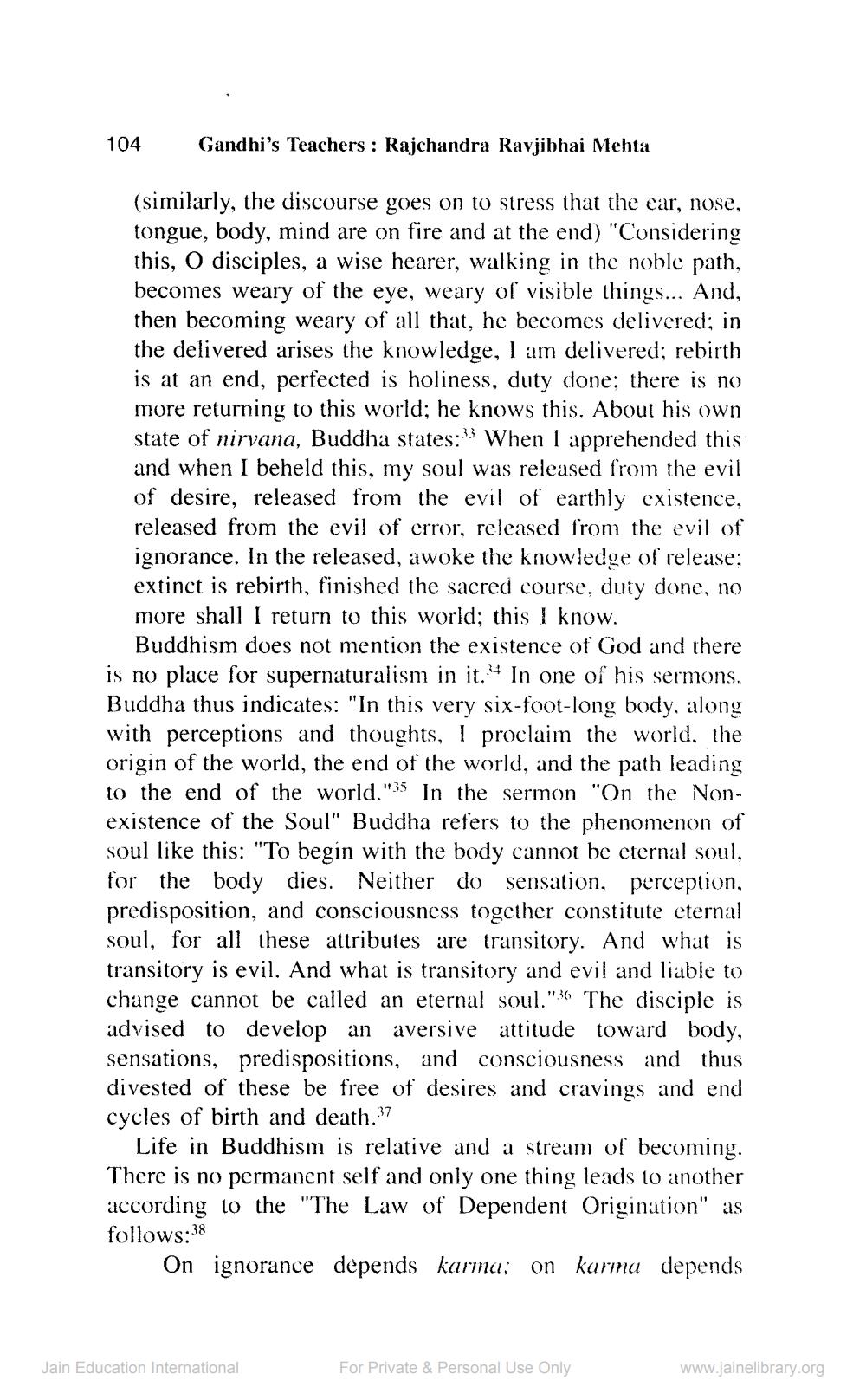________________
104 Gandhi's Teachers: Rajchandra Ravjibhai Mehta
(similarly, the discourse goes on to stress that the ear, nose, tongue, body, mind are on fire and at the end) "Considering this, O disciples, a wise hearer, walking in the noble path, becomes weary of the eye, weary of visible things... And, then becoming weary of all that, he becomes delivered; in the delivered arises the knowledge, I am delivered; rebirth is at an end, perfected is holiness, duty done; there is no more returning to this world; he knows this. About his own state of nirvana, Buddha states:33 When I apprehended this and when I beheld this, my soul was released from the evil of desire, released from the evil of earthly existence, released from the evil of error, released from the evil of ignorance. In the released, awoke the knowledge of release; extinct is rebirth, finished the sacred course, duty done, no more shall I return to this world; this I know.
Buddhism does not mention the existence of God and there is no place for supernaturalism in it. In one of his sermons, Buddha thus indicates: "In this very six-foot-long body, along with perceptions and thoughts, I proclaim the world, the origin of the world, the end of the world, and the path leading to the end of the world."35 In the sermon "On the Nonexistence of the Soul" Buddha refers to the phenomenon of soul like this: "To begin with the body cannot be eternal soul, for the body dies. Neither do sensation, perception, predisposition, and consciousness together constitute eternal soul, for all these attributes are transitory. And what is transitory is evil. And what is transitory and evil and liable to change cannot be called an eternal soul." The disciple is advised to develop an aversive attitude toward body, sensations, predispositions, and consciousness and thus divested of these be free of desires and cravings and end cycles of birth and death.37
Life in Buddhism is relative and a stream of becoming. There is no permanent self and only one thing leads to another according to the "The Law of Dependent Origination" as follows:38
On ignorance depends karma; on karma depends
Jain Education International
For Private & Personal Use Only
www.jainelibrary.org




